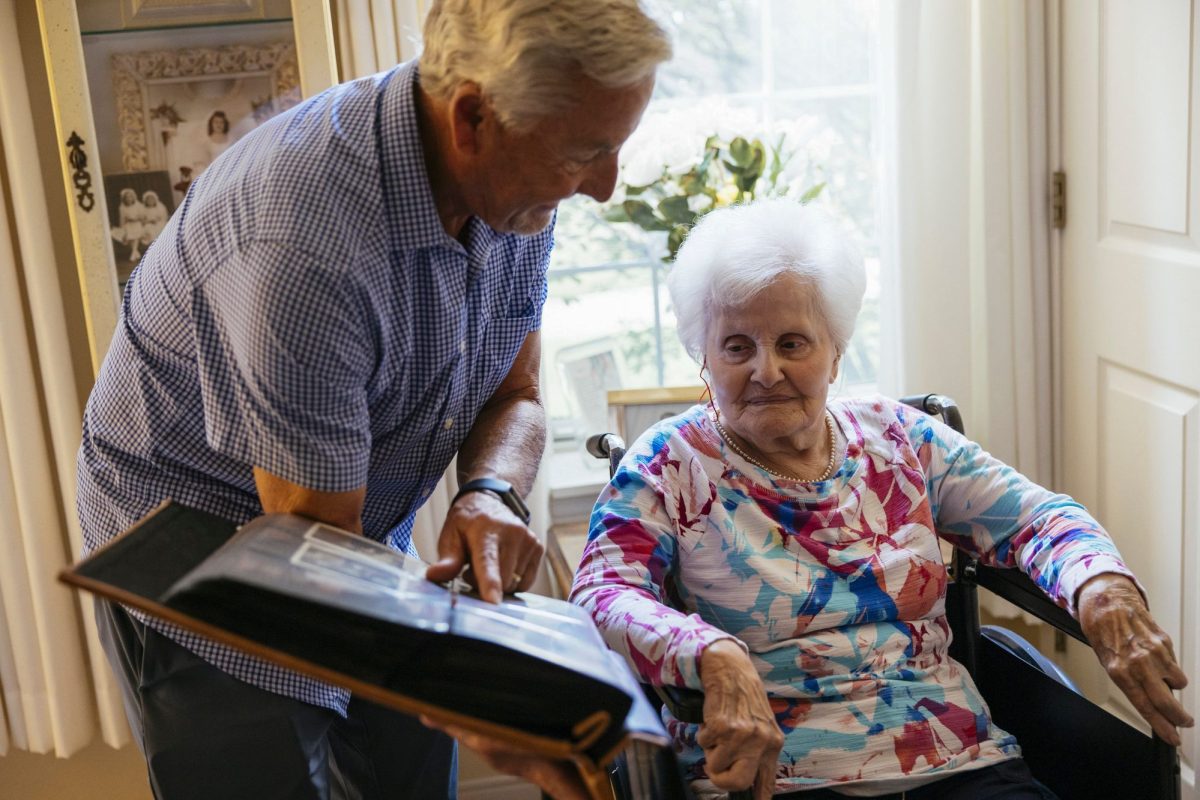FAQs on Medicare Coverage and Costs Related to COVID-19 Testing and Treatment

More than 60 million people ages 65 and older and younger adults with long-term disabilities are covered by Medicare. Due to their older age and higher likelihood of having serious medical conditions than younger adults, virtually all Medicare beneficiaries are at greater risk of becoming seriously ill if they are infected with the new coronavirus that causes COVID-19. COVID-19 is an infectious respiratory disease, which currently has no vaccine or cure. Diagnosis of COVID-19 is confirmed through testing, and treatment varies based on the severity of illness. These FAQs review current policies for Medicare coverage and costs associated with testing and treatment for COVID-19.
Does Medicare cover testing for COVID-19?
Yes, testing for COVID-19 is covered under Medicare Part B when it is ordered by a doctor or another health care provider that accepts Medicare, and if the test was ordered after February 4, 2020. Medicare Advantage plans are required to cover all Medicare Part A and Part B services, including COVID-19 testing.
How much do Medicare beneficiaries pay for COVID-19 testing?
Medicare beneficiaries who get tested for COVID-19 are not required to pay the Part B deductible or any coinsurance for this test, because clinical diagnostic laboratory tests are covered under traditional Medicare at no cost sharing. (Under traditional Medicare, beneficiaries typically face a $198 deductible for Part B services and coinsurance of 20 percent.) Recently-passed legislation also eliminates beneficiary cost sharing for COVID-19 testing-related services, including the associated physician visit or other outpatient visit (such as hospital observation, E-visit, or emergency department services). A testing-related service is a medical visit furnished during the emergency period that results in ordering or administering the test. The law also eliminates cost sharing for Medicare Advantage enrollees for both the COVID-19 test and testing-related services, and prohibits the use of prior authorization or other utilization management requirements for these services.
Does Medicare cover treatment for COVID-19?
Currently there is no known treatment for COVID-19 beyond treating the symptoms of the disease. Patients who get seriously ill from the virus may need a variety of inpatient and outpatient services. Medicare covers inpatient hospital stays, skilled nursing facility (SNF) stays, some home health visits, and hospice care under Part A, and outpatient services, including physician visits, emergency ambulance transportation, and emergency room visits, under Part B. If an inpatient hospitalization is required for treatment of COVID-19, this treatment will be covered for Medicare beneficiaries, including beneficiaries in traditional Medicare and those in Medicare Advantage plans. Beneficiaries who need post-acute care following a hospitalization have coverage of SNF stays, but Medicare does not cover long-term services and supports, such as extended stays in a nursing home.
How much do Medicare beneficiaries pay for COVID-19 treatment?
Beneficiaries who are admitted to a hospital for treatment would be subject to the Medicare Part A deductible of $1,408 per benefit period in 2020. Part A also requires daily copayments for extended inpatient hospital and SNF stays. For extended hospital stays, beneficiaries would pay a $352 copayment per day (days 61-90) and $704 per day for lifetime reserve days. If a patient is required to be quarantined in the hospital, even if they no longer meet the need for acute inpatient care and would otherwise by discharged, they would not be required to pay an additional deductible for quarantine in a hospital. Traditional Medicare beneficiaries who need post-acute care following a hospitalization would face copayments of $176 per day for extended days in a SNF (days 21-100). For COVID-19 treatment-related outpatient services covered under Part B, there is a $198 deductible in 2020 and 20 percent coinsurance that applies to most services, including physician visits and emergency ambulance transportation.
While most traditional Medicare beneficiaries (81% in 2016) have supplemental coverage (such as Medigap, retiree health benefits, or Medicaid) that covers some or all of their cost-sharing requirements, more than 6 million beneficiaries lacked supplemental coverage in 2016, which places them at greater risk of incurring high medical expenses or foregoing medical care due to costs. Medicare does not have an out-of-pocket limit for services covered under Medicare Parts A and B.
Cost-sharing requirements for beneficiaries in Medicare Advantage plans vary across plans. Medicare Advantage plans often charge daily copayments for inpatient hospital stays, emergency room services, and ambulance transportation. According to CMS guidance, Medicare Advantage plans may waive or reduce cost sharing for COVID-19-related treatments in doctor’s offices and emergency rooms, but are not required to do so. Plans may also waive prior authorization requirements that would apply to services related to COVID-19.
If a vaccine is approved for COVID-19, would it be covered by Medicare?
Medicare Part B covers certain preventive vaccines (influenza, pneumococcal, and Hepatitis B), and these vaccines are not subject to Part B coinsurance and the deductible. Medicare Part B also covers vaccines related to medically necessary treatment. For traditional Medicare beneficiaries who need these medically necessary vaccines, the Part B deductible and 20 percent coinsurance would apply.
Medicare Part D covers any vaccine licensed under section 351 of the Public Health Service Act that is not available for payment under Medicare Part B. Part D plans (including both stand-alone prescription drug plans that supplement traditional Medicare and Medicare Advantage prescription drug plans) are required to cover all vaccines that are reasonable and necessary to prevent illness. Cost sharing for vaccines and other prescription drugs varies across Part D plans.
If a vaccine becomes available for COVID-19, Medicare will cover the vaccine and all Part D plans will be required to cover the novel coronavirus vaccine if it is a Part D drug. Without a change in law, a new vaccine would likely be subject to a deductible and cost-sharing requirements, whether covered under Part B or Part D.
What telehealth benefits are covered by Medicare, and how much do beneficiaries pay?
Based on new waiver authority included in recently-passed legislation, the HHS Secretary has waived certain restrictions on Medicare coverage of telehealth services for traditional Medicare beneficiaries during the coronavirus public health emergency. The waiver, effective for services starting on March 6, 2020, lifts the requirement that beneficiaries in traditional Medicare must live in rural areas in order to receive telehealth services, meaning beneficiaries in any geographic area could receive telehealth services; lifts the requirement that beneficiaries in traditional Medicare travel to an “originating site” in order to get Medicare coverage of a full telehealth visit, which would allow beneficiaries to remain in their homes for telehealth visits reimbursed by Medicare; and allows telehealth visits to be delivered via smartphone with real-time audio/video interactive capabilities in lieu of other equipment. These telehealth services are not limited to COVID-19 related services; they are available to patients without regard to diagnosis. Telehealth visits can include regular office visits, mental health counseling, and preventive health screenings.
Traditional Medicare also covers brief, “virtual check-ins” via telephone or captured video image, and E-visits, for all beneficiaries, regardless of whether they reside in a rural area. These visits are more limited in scope than a full telehealth visit, and there is no originating site requirement. Medicare covers all types of telehealth services under Part B, so beneficiaries in traditional Medicare who use these benefits are subject to the Part B deductible of $198 in 2020 and 20 percent coinsurance. However, the HHS Office of Inspector General is providing flexibility for providers to reduce or waive cost sharing for telehealth visits during the COVID-19 public health emergency.
Medicare Advantage plans are able to offer additional telehealth benefits not covered by traditional Medicare, including telehealth visits for beneficiaries provided to enrollees in their own homes, and services provided outside of rural areas. Medicare Advantage plans have flexibility to waive certain requirements with regard to coverage and cost sharing in cases of disaster or emergency, such as the COVID-19 outbreak. In response to the coronavirus pandemic, CMS has advised plans that they may waive or reduce cost sharing for telehealth services, as long as plans do this uniformly for all similarly situated enrollees.
Can Medicare beneficiaries get extended supplies of medication?
The Department of Homeland Security recommends that, in advance of a pandemic, people ensure they have a continuous supply of regular prescription drugs. Typically Medicare Part D plans place limits on the amount of medication people can receive at one time, and limits on the frequency with which patients can refill their medications. CMS has stated that in cases of national disaster or emergency declarations or public health declarations, it expects Part D plans to lift their “refill-too-soon” edits until the termination of the emergency declaration.
In light of the coronavirus pandemic, Part D plans (both stand-alone drug plans and Medicare Advantage drug plans) may (but are not required to) relax certain requirements with regard to limits on extended day supply and “refill-too-soon” restrictions. Because refill rules vary across Part D plans, Part D enrollees would need to contact their pharmacist or plan to determine if they can get an extended supply.
According to CMS, for drugs covered under Part B, Medicare and its contractors make decisions locally and on a case-by-case basis as to whether to provide and pay for a greater-than-30 day supply of drugs.
What happens if Medicare beneficiaries in private plans need to receive care from out-of-network providers?
Plans that provide Medicare-covered benefits to Medicare beneficiaries, including stand-alone prescription drug plans and Medicare Advantage plans, typically have provider networks and limit the ability of enrollees to receive Medicare-covered services from out-of-network providers, or charge enrollees more when they receive services from out-of-network providers or pharmacies. In light of the declaration of a public health emergency in response to the coronavirus pandemic, certain special requirements with regard to out-of-network services are in place. During the period of the declared emergency, Medicare Advantage plans are required to cover services at out-of-network facilities that participate in Medicare, and charge enrollees who are affected by the emergency and who receive care at out-of-network facilities no more than they would face if they had received care at an in-network facility.
Part D plan sponsors are also required to ensure that their enrollees have adequate access to covered Part D drugs at out-of-network pharmacies when enrollees cannot reasonably be expected to use in-network pharmacies. Part D plans may also relax restrictions they may have in place with regard to various methods of delivery, such as mail or home delivery, to ensure access to needed medications for enrollees who may be unable to get to a retail pharmacy.
Are there any special rules for Medicare coverage for skilled nursing facility or nursing home residents related to COVID-19?
In response to the national emergency declaration related to the coronavirus pandemic, CMS is waiving the requirement for a 3-day prior hospitalization for coverage of a skilled nursing facility (SNF) for those Medicare beneficiaries who need to be transferred as a result of the effect of a disaster or emergency. For beneficiaries who may have recently exhausted their SNF benefits, the waiver from CMS authorizes renewed SNF coverage without first having to start a new benefit period.
Nursing home residents who have Medicare coverage and who need inpatient hospital care, or other Part A, B, or D covered services related to testing and treatment of coronavirus disease, are entitled to those benefits in the same manner that community residents with Medicare are.
Medicare establishes quality and safety standards for nursing facilities with Medicare beds, and has issued guidance related to infection control and prevention for COVID-19 to limit the exposure of nursing home staff and patients. This guidance directs nursing homes to restrict visitation by all visitors and non-essential health care personnel (except in compassionate care situations such as end-of-life), cancel communal dining and other group activities, and actively screen residents and staff for symptoms of COVID-19. These new rules do not apply to assisted living facilities, which are regulated by states.




